Meet Alex Caspero
Alex Caspero is a Registered Dietitian, New York Times Bestselling Chef, and mom of two. She aims to cut through the nutrition noise by providing real-life, nourishing tips for body and mind. Learn more about Alex.
Probiotics are all the rage these days. You can find these beneficial live bacteria in capsules, powders, and fermented foods. Probiotics help populate our gut with good bacteria to support digestion and overall health. But, gut health is more than just probiotics. You need plenty of prebiotic foods to help support a healthy gut.
Many everyday foods act as prebiotics, feeding the existing good bacteria in your gut. A diet rich in these prebiotic foods can improve digestion, strengthen your immune system, and provide other health benefits.
Probiotics are live bacteria that can be consumed in food or supplement form and can contribute to the beneficial bacteria in your gut. Prebiotics are indigestible fibers that can be found in fiber-rich carbohydrates and are what feed the beneficial bacteria in the gut. While both of these nutrients can be found in popularized supplement form, they are also easy to consume through diet.
Keep reading to find out which 12 different foods are rich in probiotics and prebiotics to help support your gut health.
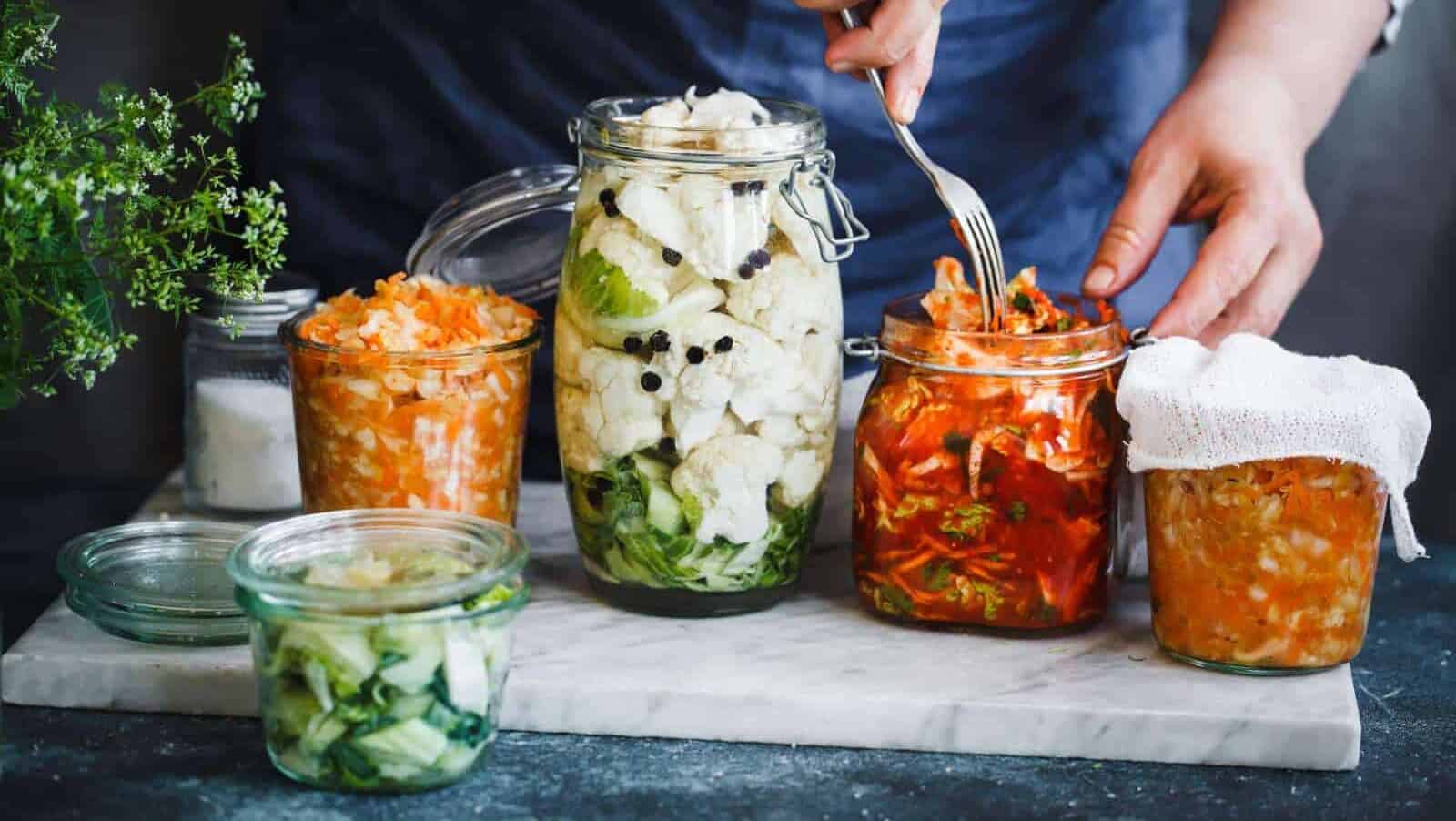
Fermentation, specifically lactic acid fermentation, is the process of natural or added bacteria cultures in an environment without much oxygen (like a sealed container) converting sugars from carbohydrates into lactic acid, giving foods a characteristic sour taste. Fermentation also occurs in alcohol products like beer, where yeast bacteria cultures create alcohol molecules.
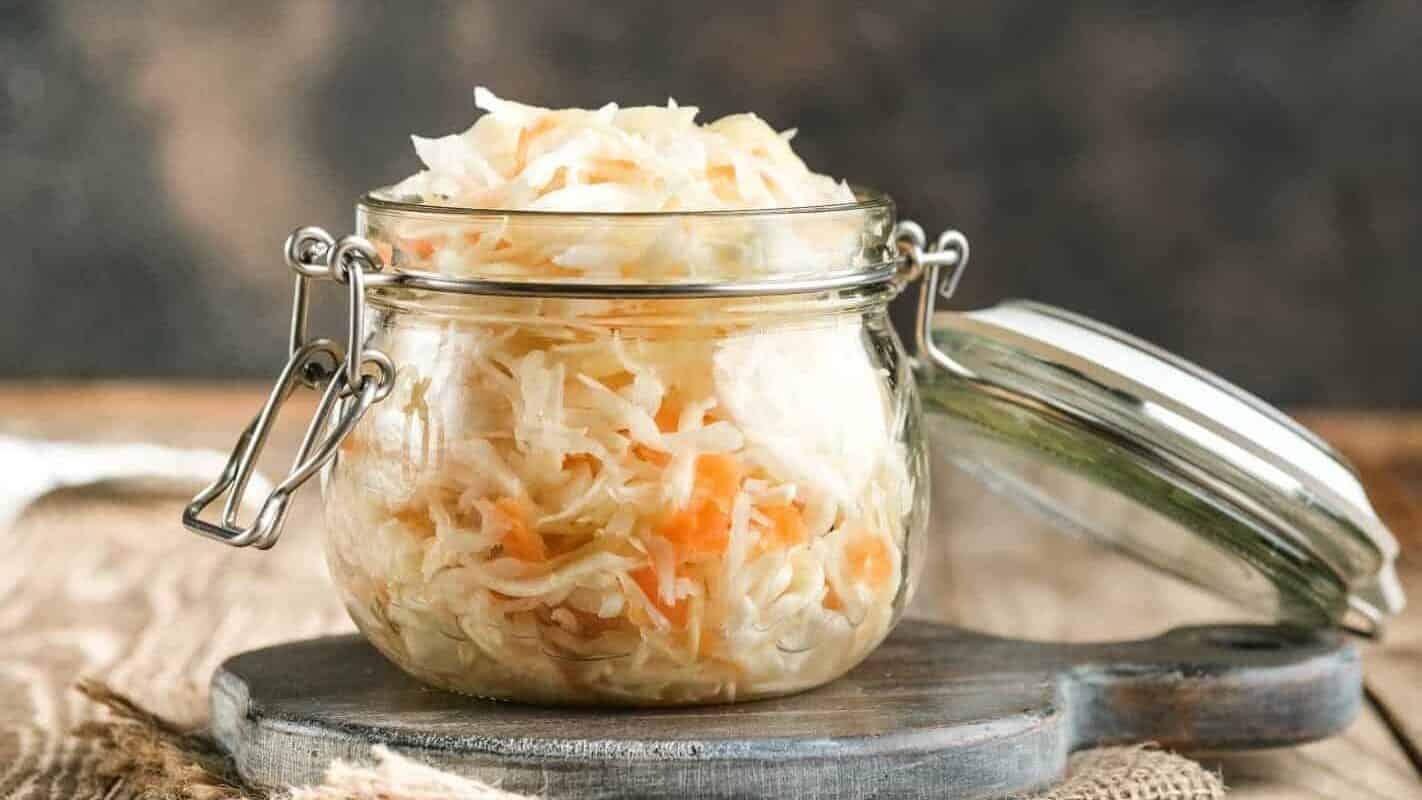
Cabbage is a commonly fermented vegetable in production of condiments such as kimchi and sauerkraut. Both have a characteristic tangy flavor and contain high amounts of beneficial bacteria. Kimchi originates from Korean culture where a variety of spices are added to cabbage, and may include other vegetables like daikon radish as well. Sauerkraut originates from German culture and is more simply seasoned in comparison. Both contain vitamins and minerals as well as fiber.
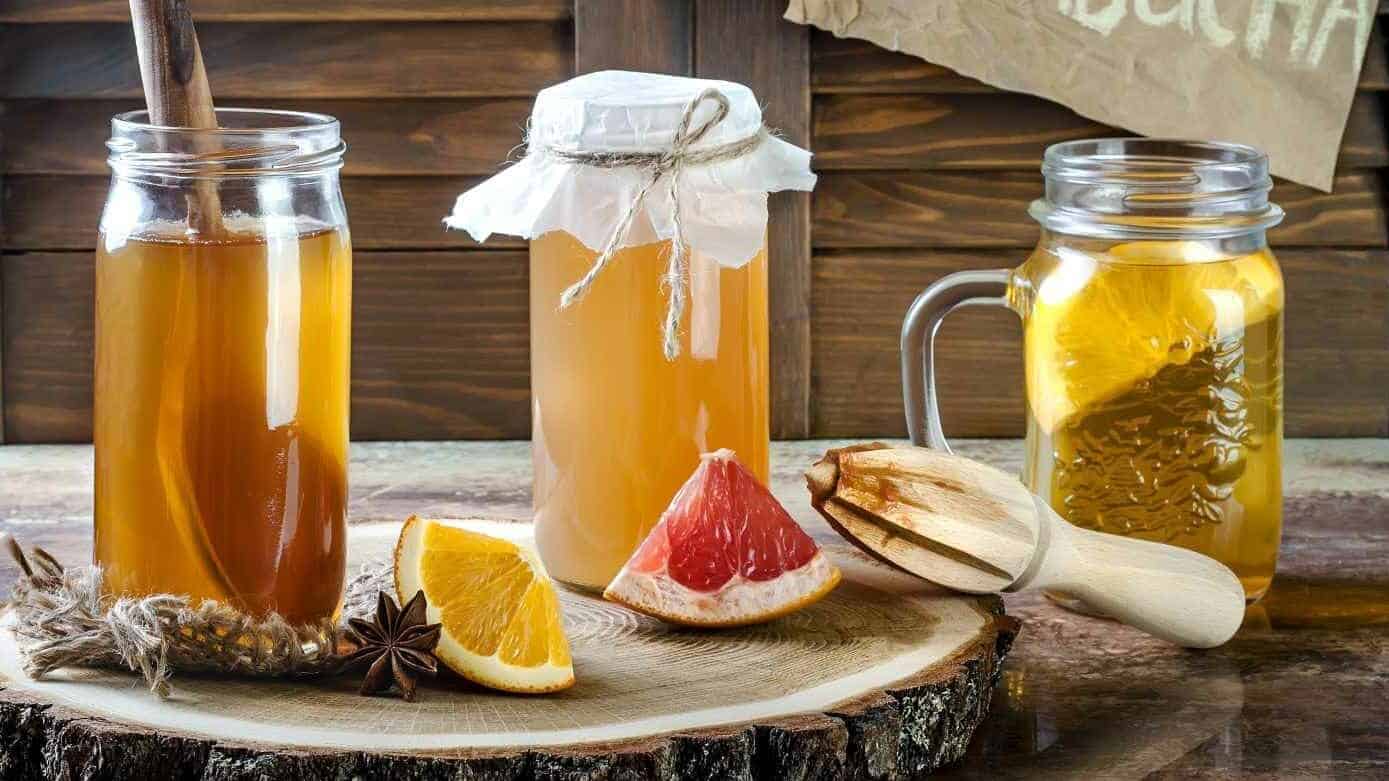
Kombucha is an increasingly popular beverage due to its probiotic health benefit claims. This drink is made from fermented black tea and often includes added sugar and flavorings. Without these additions, the beverage may taste too acidic for some consumers’ preferences. Consider looking at the nutrition labels the next time you shop for kombucha to see how much sugar is added.
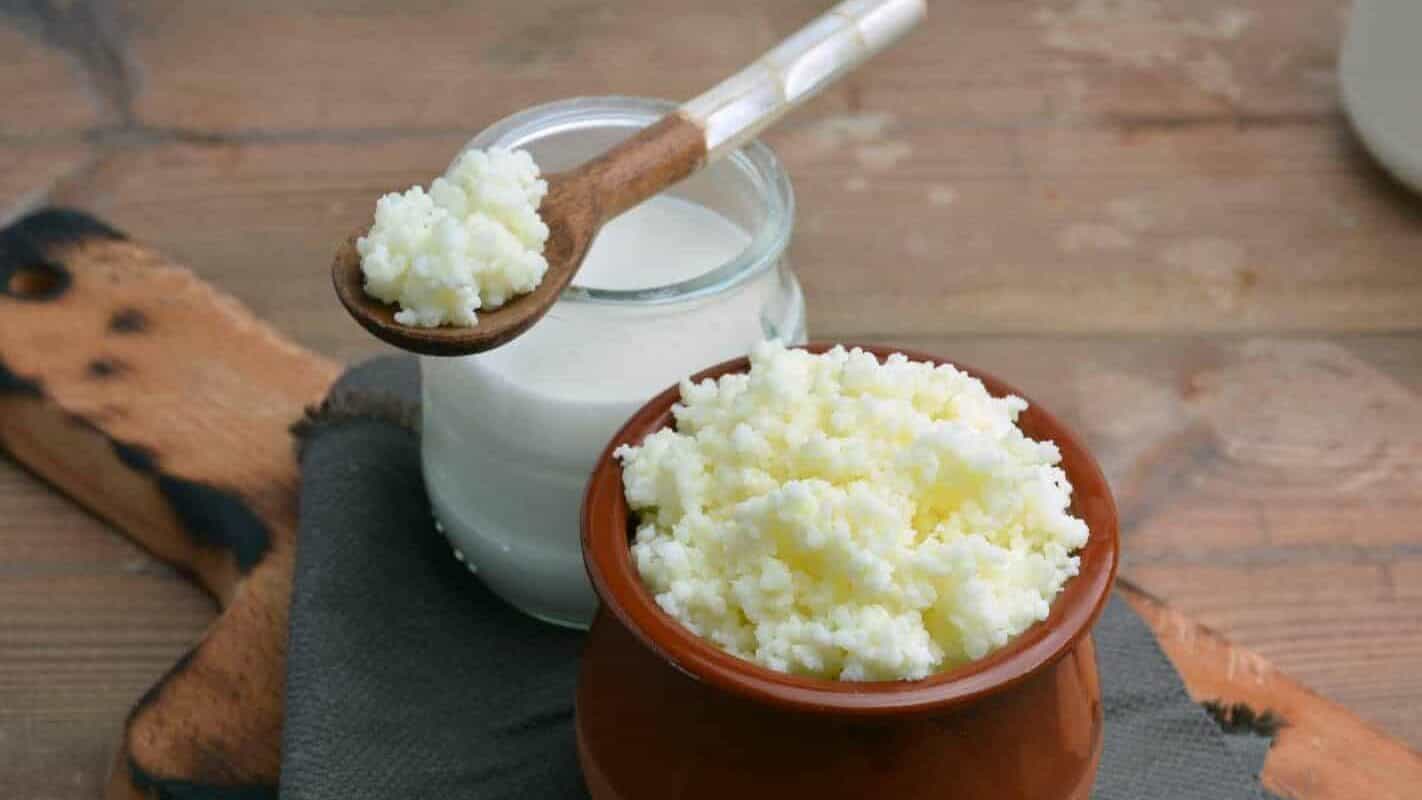
Kefir is a drinkable type of fermented dairy product that tastes similar to yogurt. Because it is fermented by adding bacterial cultures, this drink is a good source of probiotics.

Kimchi is a fermented food, which means it’s teeming with beneficial bacteria like lactic acid bacteria. These probiotics are similar to the good bacteria naturally present in your gut microbiome, and consuming them may help improve the balance of gut bacteria.
Kimchi also contains fiber, which acts as a prebiotic. Prebiotics don’t directly populate your gut with good bacteria, but they serve as food for the existing good bacteria, helping them thrive.
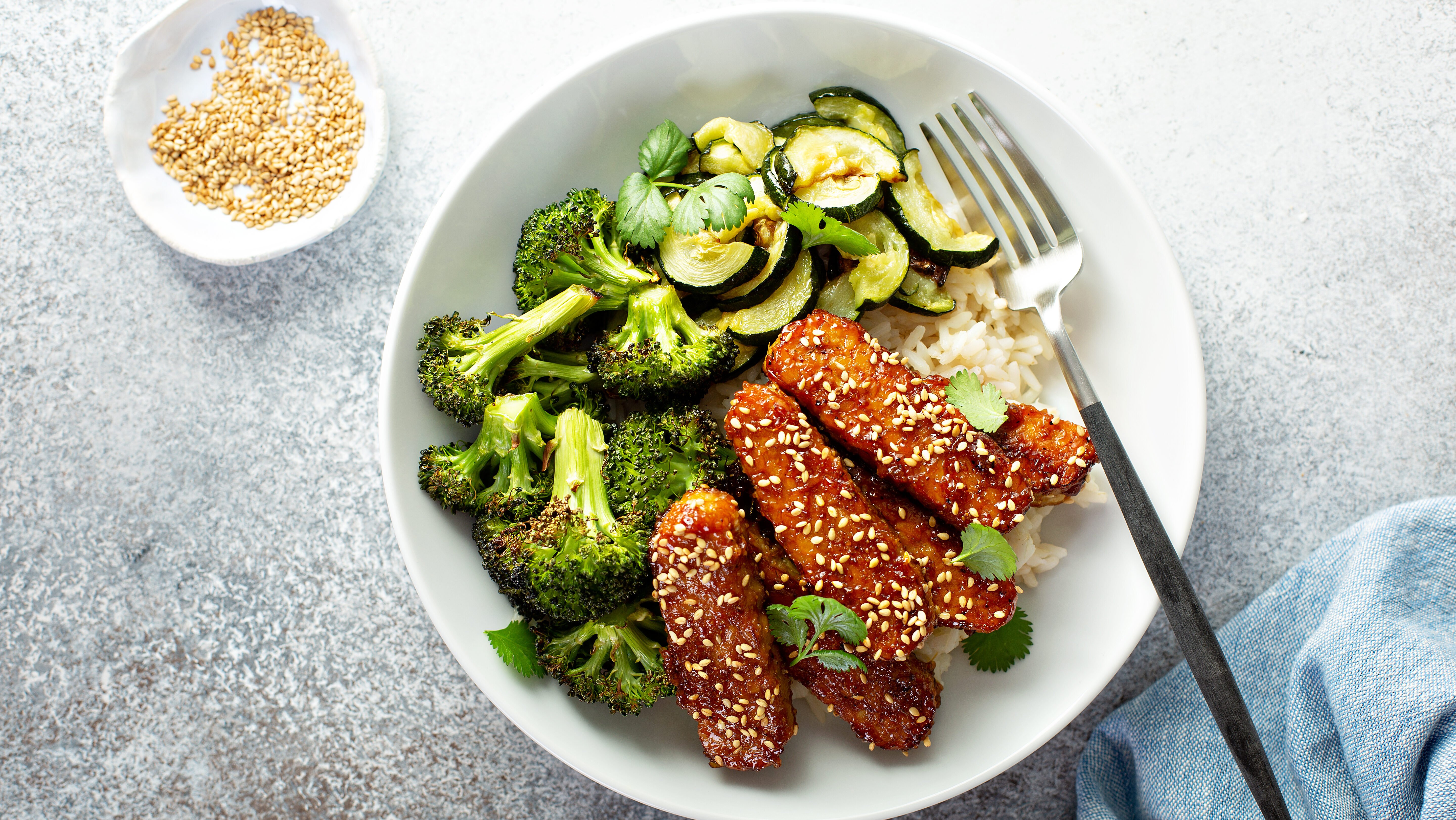
Tempeh is a popular plant based protein that is also made from fermented soy beans. It can be eaten and cooked similarly to firm tofu. Not only is it a good source of beneficial bacteria, but it is also high in fiber and protein.
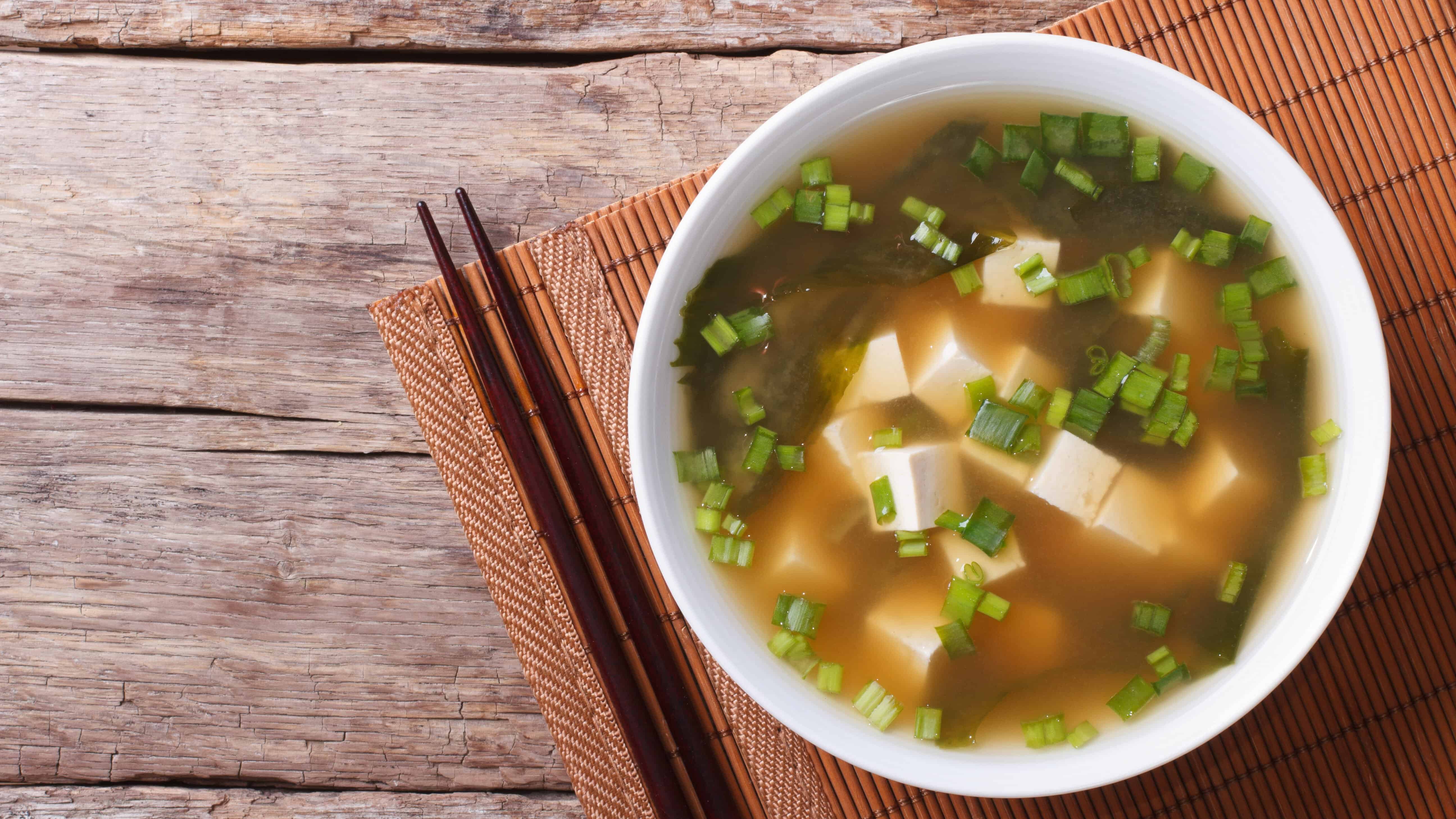
Miso is commonly found in a paste form, typically used as a seasoning, and is made from fermented soybeans. While it is rich in probiotics, it also can have a higher salt content. So be mindful of reading the nutrition label if you are watching your sodium intake.
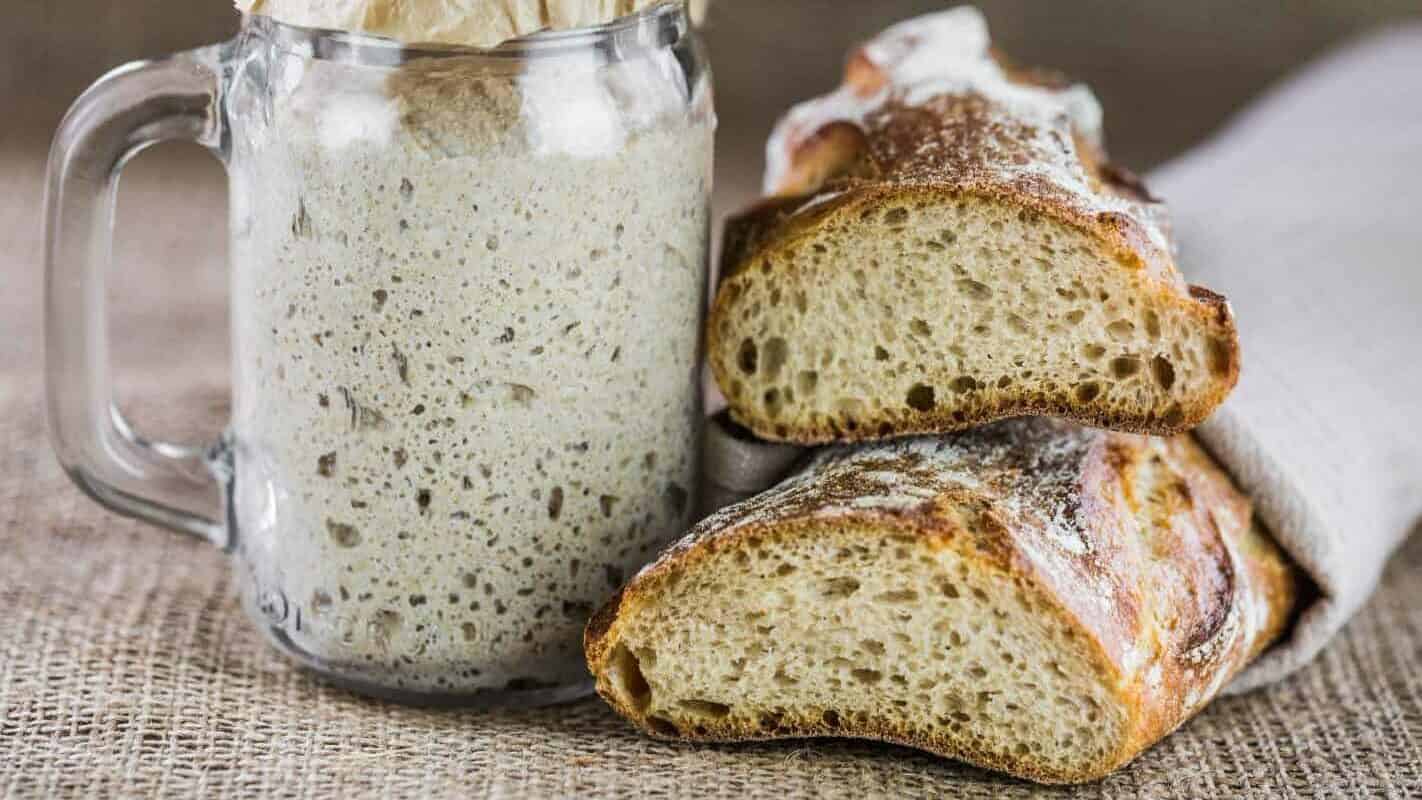
Sourdough, most commonly seen with sourdough bread, is made from adding yeast to wheat or other types of grain flours. The yeast culture breaks down the carbohydrates from the flour and produces lactic acid through fermentation, which gives sourdough bread its distinct tangy aroma and taste.
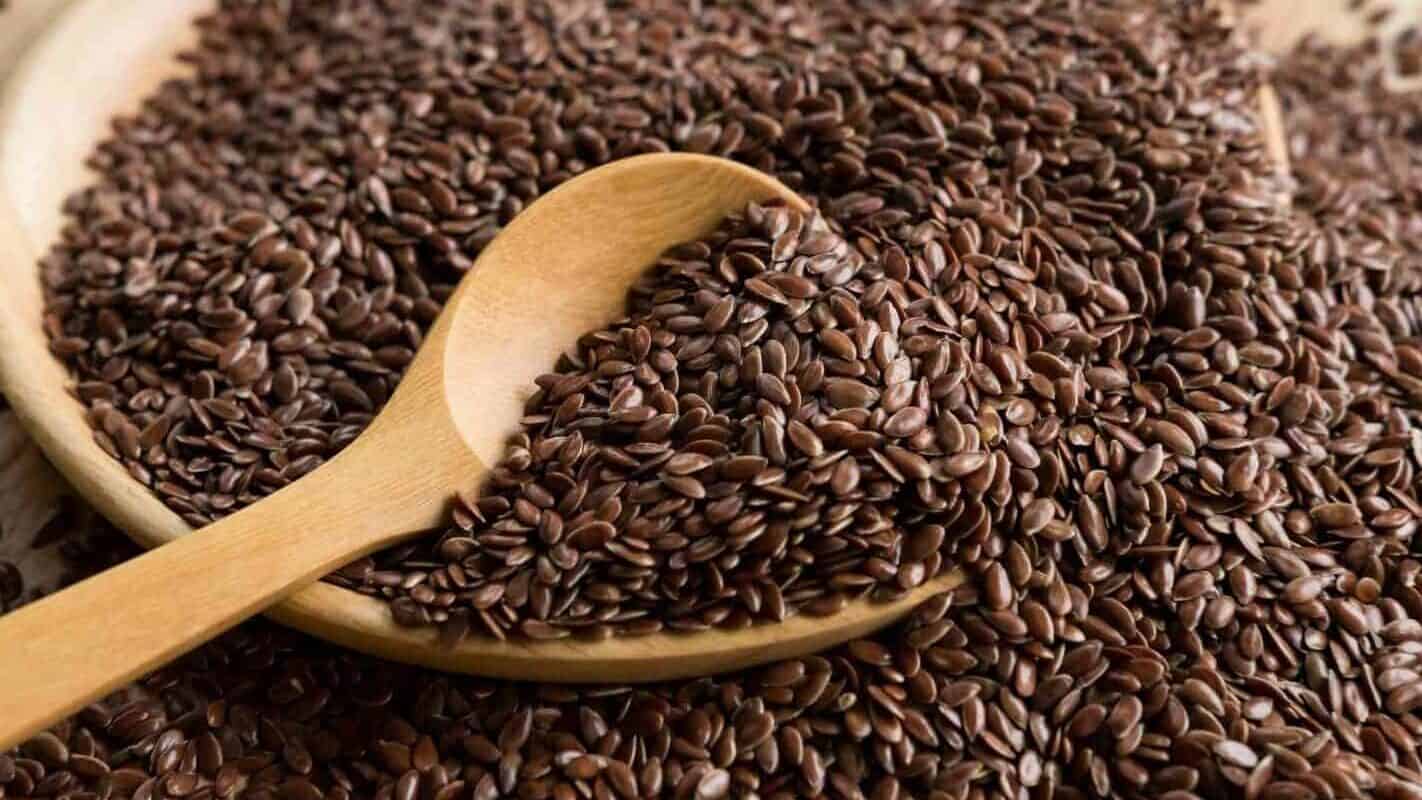
Flaxseeds are a good source of prebiotics due to the high fiber content. Flaxseeds can be found in ground or whole form and are a deliciously nutty addition to smoothies, granola, oatmeal, baking recipes, salads, and yogurt. Similar to chia seeds when mixed with a liquid, ground flaxseeds can act as a thickener, and can be used as a vegan egg replacement in baking.
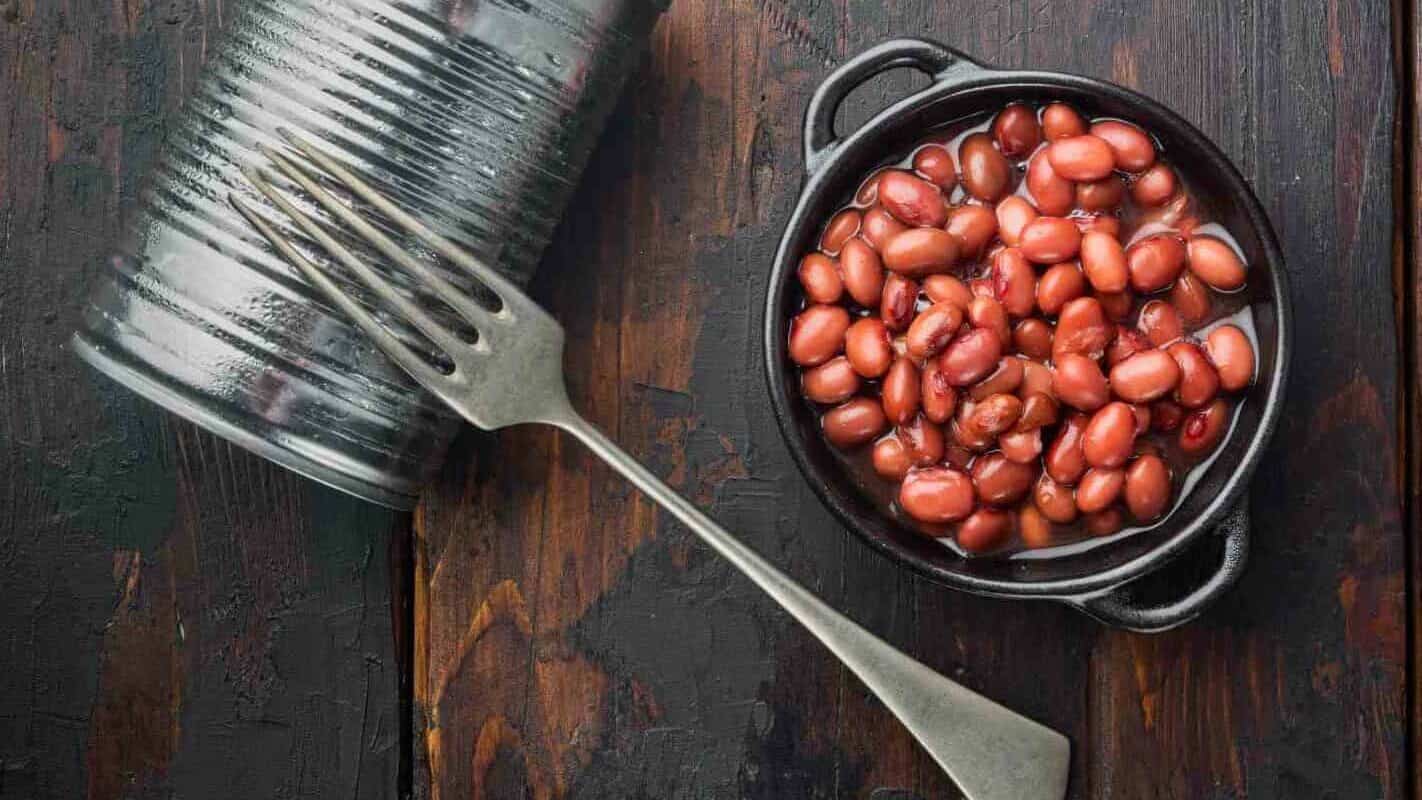
Lentils are a nutritious legume that is high in fiber, which helps to feed the gut bacteria. Lentils are also a great source of plant based protein and other beneficial nutrients. They can be found in dried or canned forms, and are a great addition to salads, soups, stews, pasta, veggie burgers and other recipes!
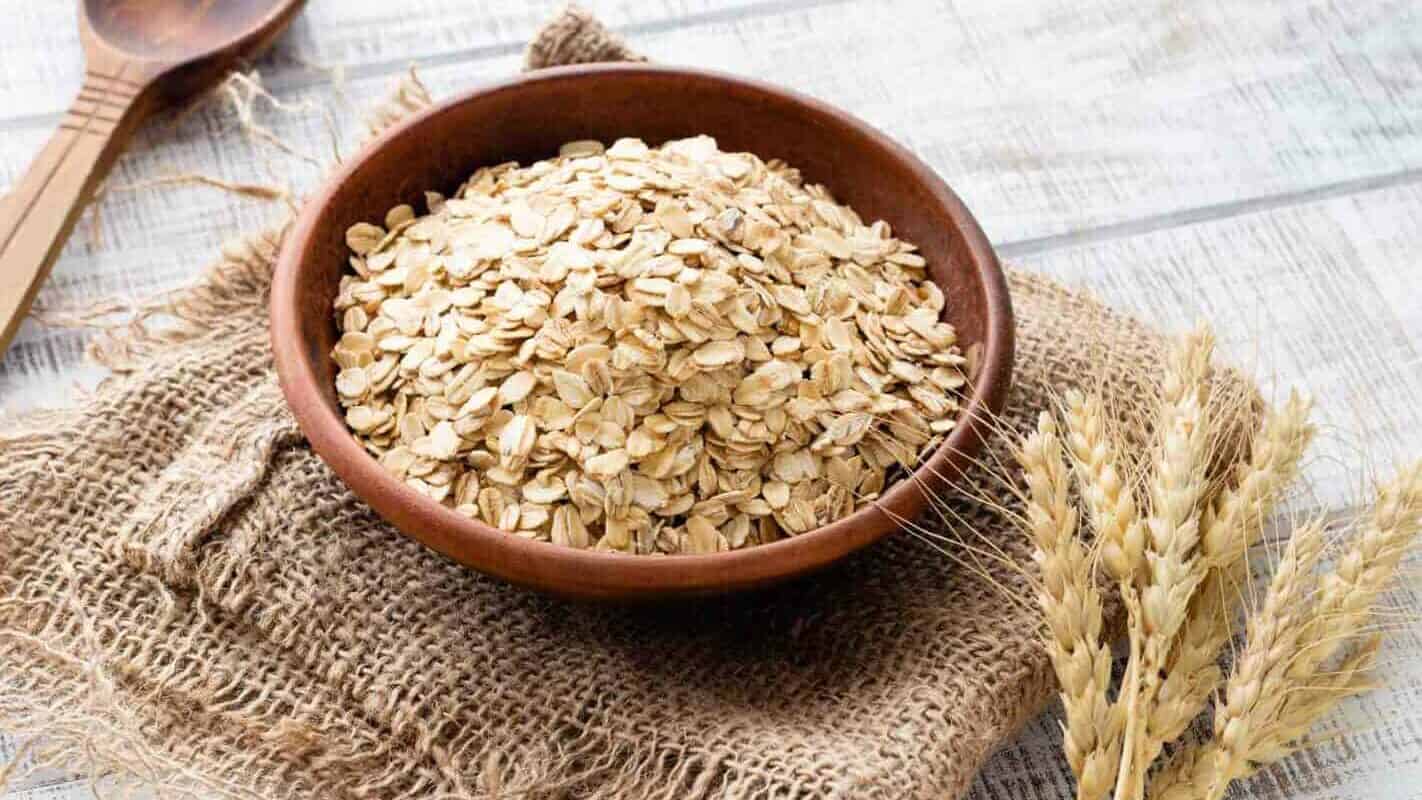
Oats are a whole grain and can be found as rolled/old fashioned oats, steel cut, and instant varieties. They are high in prebiotic fiber and help support a healthy gut microbiome.
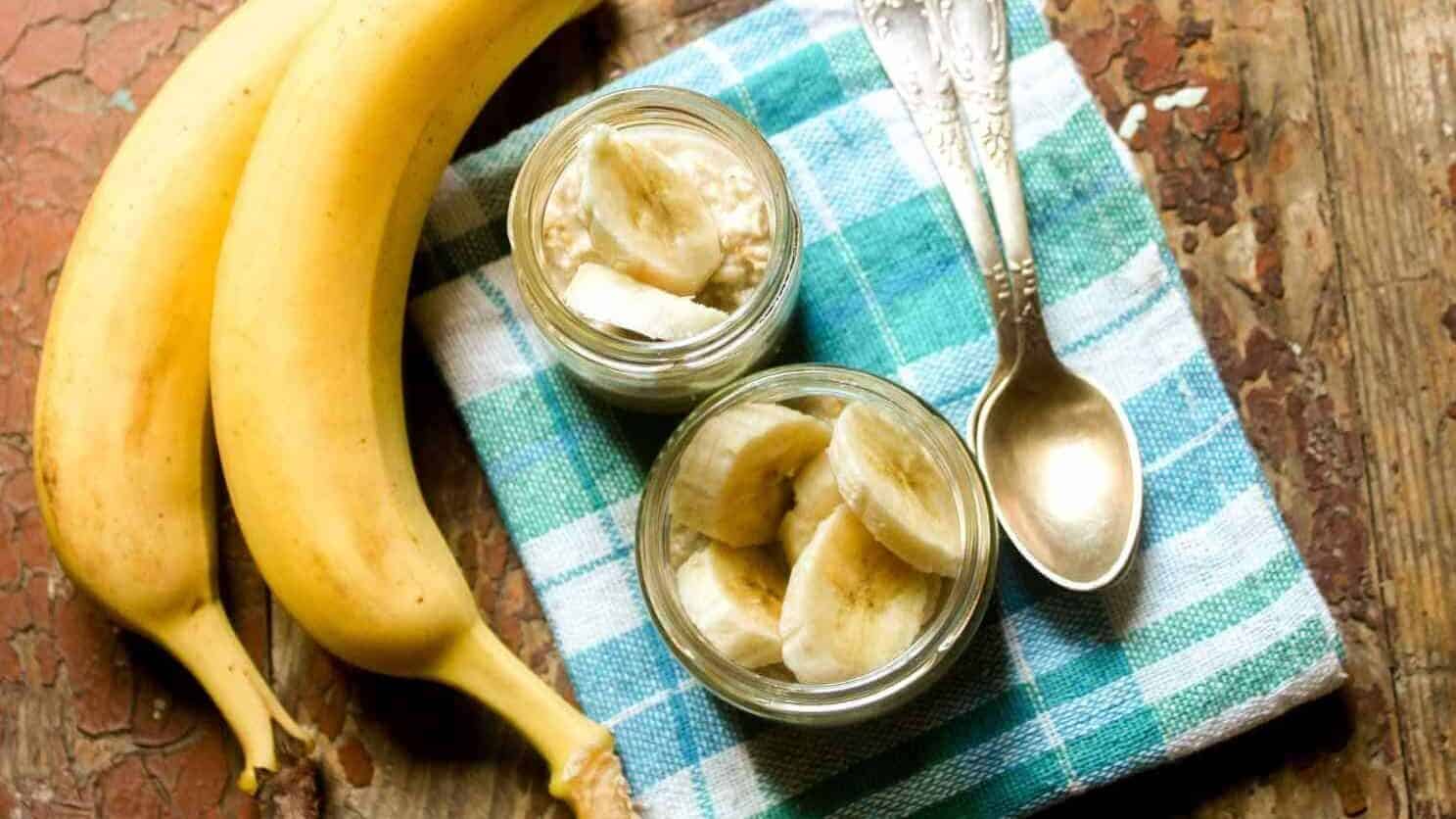
Bananas, aside from being a good source of potassium, also contain prebiotic fibers. The type of fiber, known as resistant starch, is highest in less ripe and green bananas. Look for bananas without brown spots formed yet.
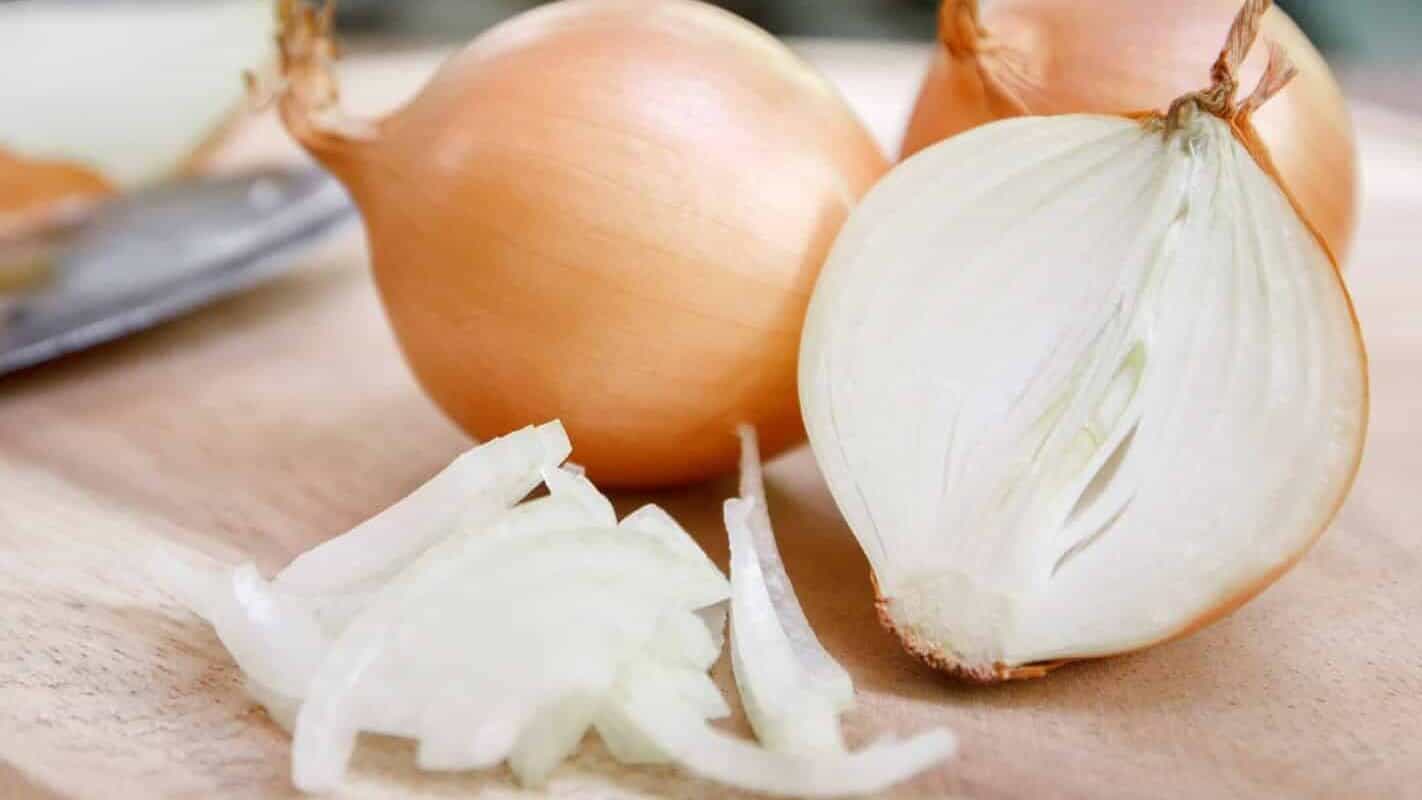
Onions are an aromatic vegetable high in inulin and fructooligosaccharides (FOS). Both of these nutrients are a good source of prebiotics to help support the gut bacteria.

Having canned goods stocked in your pantry can help ensure you always have access to quick, healthy meals and snacks. Registered Dietitians love canned foods as they are nutritious, accessible and affordable, especially choices that are lower in sodium and added sugar.
To help stock your pantry, we asked nutrition experts to share their healthiest canned food picks– these are their top 15 must-have canned foods.
Read: The 15 Healthiest Canned Foods To Stock Up On
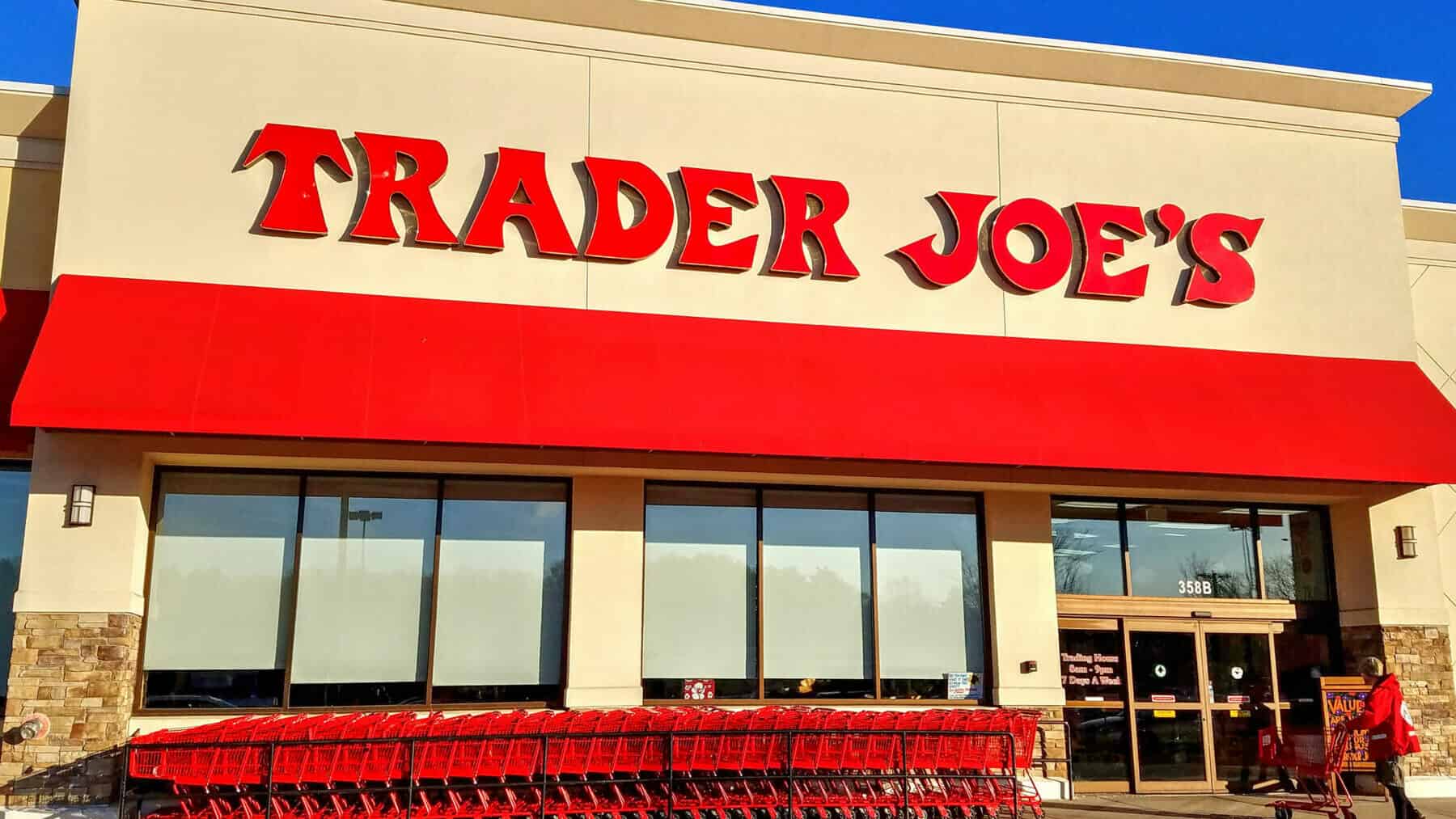
Trader Joe’s has become a go-to grocery store for many health-conscious shoppers looking for great values on nutritious foods. With so many options lining the shelves, what are the best bets for healthy options according to experts?
We consulted Registered Dietitians across the country about their top food finds at Trader Joe’s. From plant-based proteins to snacking staples and everything in between, these dietitians handpicked their must-have items to fill your cart with.
These are Registered Dietitian’s favorite Trader Joe’s products.
Read: Nutritionists Can’t Live Without These 17 Healthy Trader Joe’s Buys

Having dietitian-approved snacks on hand can make sticking to your health goals much easier when hunger hits. With minimal prep and portion control, these snacks offer an easy way to curb cravings and give your body the fuel it needs.
These are the best store-bought, dietitian-approved snacks.
Read: 22 Nutritionist-Approved Packaged Snacks You Can Feel Good About Eating

With its low prices and clever finds, Aldi has become a go-to grocery store for many shoppers looking to save money.
We asked registered dietitians to share their favorite Aldi buys. From healthy snack foods to lean protein choices to vitamin-packed produce, these experts revealed their top Aldi picks that deliver great nutrition without costing too much.
(no comments) leave a comment